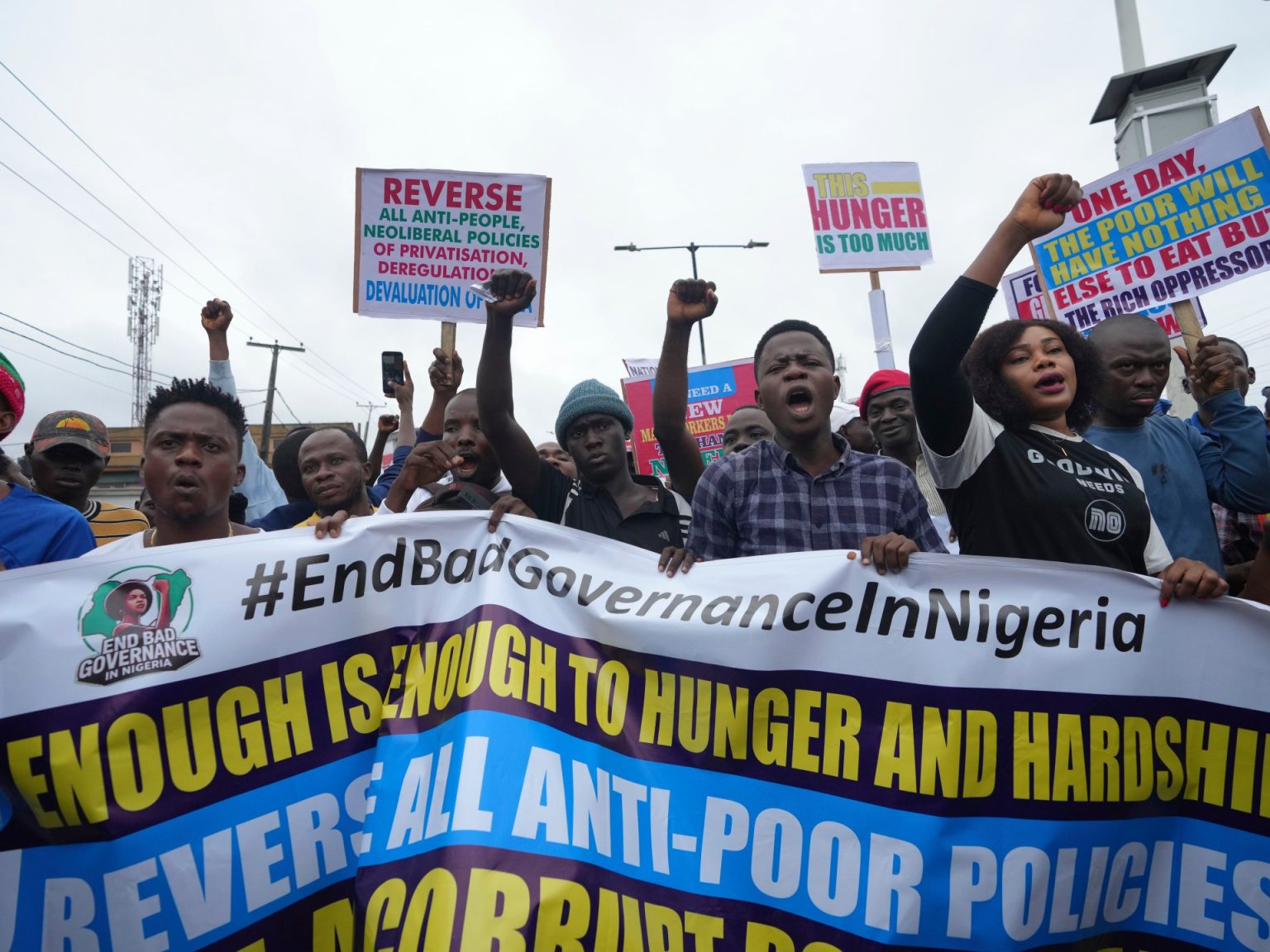Thousands of Nigerians took to the streets in cities across the country to protest the high cost of living. The protests were sparked by soaring inflation and a sharply devalued naira, following President Bola Ahmed Tinubu’s decision to end a costly fuel subsidy and liberalize the currency more than a year ago in an effort to improve the economy. The protest movement, tagged #EndbadGovernanceinNigeria, gained momentum through an online campaign, but officials cautioned against copying recent violent demonstrations in Kenya.
Many Nigerians are feeling the financial strain of high food inflation, which is at 40 percent, and tripled fuel prices from a year ago. Some protesters are struggling to feed their families and are calling on the government to reduce fuel prices. In Kano, the country’s second-largest city, demonstrators set fire to tires outside the state governor’s office, prompting police to respond with tear gas to disperse the crowds. There were reports of looting and arson in the city, with 13 people arrested.
In Abuja, security forces blocked off roads leading to planned protest sites and used tear gas and barbed wire fencing to prevent protesters from reaching designated areas. Similar confrontations occurred in Mararaba on the outskirts of the capital. In Lagos, the economic capital, around 1,000 people marched peacefully, chanting “Tinubu Ole” (thief) to criticize the president. Protesters also gathered in Maiduguri, Bauchi state, and several other states across Nigeria, expressing their discontent with the government’s handling of the economy.
The protests underscore the widespread frustration among Nigerians over the state of governance and economic hardship. Many who participated in the demonstrations cited hunger and financial struggles as their reasons for joining the movement. The government’s decision to end the fuel subsidy and liberalize the currency has led to a sharp increase in prices, making it challenging for individuals to afford basic necessities like food and fuel. The dissatisfaction with the government’s actions has fueled the protests and calls for change.
While the protests have largely been peaceful, there have been instances of violence and clashes with security forces. In Kano, protesters clashed with police, leading to tear gas being deployed to disperse the crowd. In Abuja, security forces used tear gas and cordoned off protest sites to prevent demonstrators from gathering. Despite these challenges, protesters have remained steadfast in their demands for better governance and economic policies that prioritize the well-being of all Nigerians.
The ongoing protests in Nigeria signal a growing discontent with the government’s handling of economic issues and governance. The high cost of living, exacerbated by inflation and currency devaluation, has pushed many Nigerians to speak out against these challenges. The protests have highlighted the desperation of those who are struggling to make ends meet and have sparked a larger conversation about the need for reforms and improved governance in the country. As the demonstrations continue, it remains to be seen how the government will respond to the grievances of its citizens and whether meaningful change will be enacted to address the concerns raised by the protesters.













